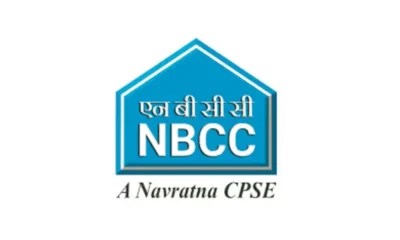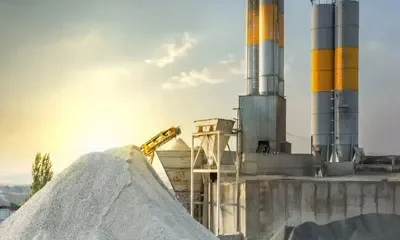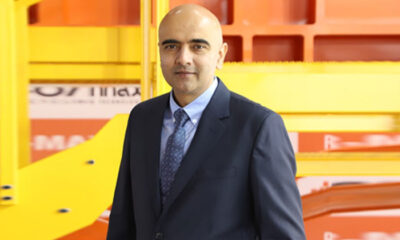Economy & Market
Benefits of gypsum capping
Published
4 years agoon
By
admin
Taiwan Capstone, the sole promoter of the new gypsum capping method, demonstrates to ICR how the technology works and why is it better than conventional methods.
The most important property of concrete for an engineer is its compressive strength. But are you testing for it in the right way? Several factors influence the measurement process. The flatness of the surface, its horizontal level does have a huge impact on the measurement outcome. To ensure that such anomalies are ruled out, conventionally the concrete specimen block is ground to get a flat surface. This method however, has several shortcomings and which can be overcome with the new gypsum capping method.
Capping is the process of leveling the ends of cylindrical concrete specimens to ensure that the test cylinder or core has smooth, parallel, uniform bearing surfaces that are perpendicular to the applied axial load during compressive strength testing. This is done to ensure that the specific criteria for flatness and perpendicularity of the ends are in accordance with the applicable standards specified.
Importance of capping
ASTM C39 requires that the ends of compressive test specimens be plane to within 0.002 inch (0.05 mm) and that the deviation of end faces from being perpendicular to the specimen axis is less than 0.5° (0.12 inch in 12 inches or 1 mm in 100 mm). Similar requirements are stated in ASTM C42 for testing cores. Irregular end surfaces or when the specimen axis is not perpendicular to the end-faces will cause stress concentrations within the test specimen and reduce the measured strength. Since the end-faces of most test specimens will not meet these requirements, procedures in ASTM C617 or C1231 for capping hardened concrete cylinders are used. This ensures that the compressive load is applied evenly and consistently for every strength test.
Capping process
ASTM C617 is the standard practice for capping cylindrical concrete specimen. Cores should be cut or ground to meet the end condition requirements or they may be capped in accordance with ASTM C617. Unbonded caps are currently not permitted when testing cores but may be permitted in the future. ASTM C617 permits a bonded cap to be applied to freshly molded cylinders using high strength gypsum plaster or sulfur mortar are permitted as bonded capping materials for hardened concrete cylinders.
Comparison
There are two ways to get the ends of the concrete specimen flat and horizontal. One is grinding the concrete surface and other is using capping material. Let’s review each one.
Grinding
Grinding is a very common and standard surface treatment method but the user must spend huge capital for the machine and also has to do periodic maintenance to ensure that ground surface remains evenly flat.
Capping material
There are three capping materials, which are qualified for this as per the IS 516 standard.
- Neat cement.
- Sulphur.
- Hard plaster.
Those are also qualified in the ASTM C617 standard.
Neat cement capping
Mix the cement with water in the desired water-cement ratio. A two to four hour additional waiting time is required before it can be pasted on the concrete surface. The waiting period is important as the mixed pastes tend to bleed, shrink and make unacceptable caps.
Sulphur capping
Sulphur capping requires a heater for melting the capping material first. It also generates toxic gas and bad odour in the process. Sulphur capping needs two hours of hardening time before testing. For concrete strengths of 350 kg/cm2 or greater, sulphur caps must be allowed to harden for at least 16 hrs before use. Besides, sulphur caps cannot be reused.
Hard plaster capping
The strength of the plaster material is a critical property for its use as capping material. Ordinary plaster of Paris will not serve the purpose of the capping material due to its low compressive strength. Taiwan Capstone manufactures extraordinary high strength gypsum for use as capping material in concrete compression strength testing. Generally, the common gypsum hardens to with stand 1000 psi more or less. However, our products in the Capstone series can reach 5,000-9,000 psi (350-630 kgf/cm2), 30 minutes after mixing with water. It is fast, more efficient, highly reproducible, health friendly to the user, easy to stock, no costly apparatus needed and follows IS 516 Indian Standard and ASTM C617 regulation. There is another material which is also used in the concrete compressive strength test. It is Neoprene pad capping. The major advantage is the convenience. But often the test results are not completely reliable. The users have to prepare different types of caps for variety of concrete specimen.
Gypsum capping vs grinding
The two methods can be compared on the basis of following characteristics:
- Surface flatness.
- Pressure uniformity.
- Sample applicability.
Surface flatness Gypsum
Gypsum shows better flatness after capping. The complete smooth surface is an outcome of the flowing gypsum slurry and the thick glass plate placed on it while the gypsum sets. After covered by the glass, the gypsum surface will become flat just like the glass surface on top of it.
Grinding
Grinding merely reveals the surface beneath the top with all its imperfections. In this process the concrete surface is treated by the grinding knife. It is difficult to get a completely smooth surface. Without the periodic maintenance, the knife frequently gets damaged and eventually leads to uneven concrete surface.
Pressure uniformity
Here, a pressure-sensitive paper is used to check the surface smoothness. As you can see from the diagram, there is a significant difference between the flatness of gypsum capped and ground surface.
Comparison of capping materials
If we compare gypsum capping, sulphur capping and the neoprene pad, it becomes obvious that gypsum has several advantages over the other two. It provides the best pressure uniformity and data accuracy. That is clear from the comparison chart below.
As the data shows, gypsum capping renders the surface extremely smooth and also makes it perfectly horizontal. Therefore, it can reach the highest compressive strength value and retain stable data at any time. From the operational point of view, gypsum only needs water for the reaction. It provides a safe working process and also increases the efficiency of the sample preparation. Sulfur has characteristics similar to those of gypsum for capping applications, but it takes a very long time to harden, with very bad odours and toxic gases let out during the process.
Neoprene pads have lower compressive strength and a higher SD value since they are often not perfectly horizontal. Furthermore, neoprene pads show higher and higher variation as the pads get reused. It is a convenient but inaccurate capping material.
Capstone compressive test data
Established in 1981, Taiwan Capstone is based in Taiwan and is the sole supplier of high strength gypsum for capping in the country. Sulfur capping is prohibited for safety reasons and rubber is banned by the market for the unstable performance.
They started their international business in April 2013 and since then, have expanded the market with competent local agent partners in India, Thailand, Singapore, Indonesia, USA, Mexico, Columbia, Canada and Israel. Now they are looking for more partners worldwide, to grow further. High-strength gypsum is absolutely the revolutionary capping material, especially considering its environment friendliness.
For more information, contact: Shailesh Chauhan Tel: 00-91-9377458606, E-mail: shailesh@itlneels.com Website: www.twcapstone.com
You may like
-
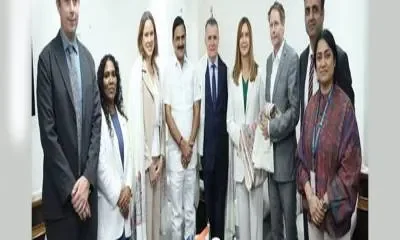

India, Sweden Discuss Green Steel Collaboration
-
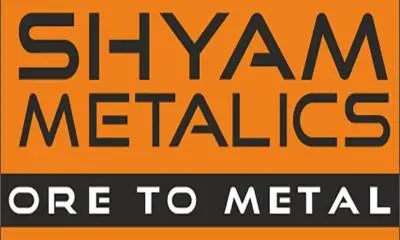

Shyam Metalics Unveils Rs 100 billion Capex Plan Under Vision 2031
-


India Sets Up First Carbon Capture Testbeds for Cement Industry
-
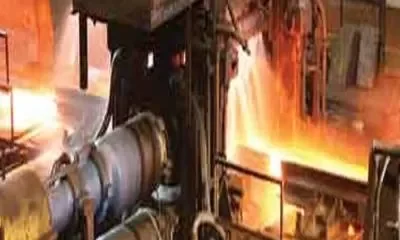

Indian Steel Ministry Seeks $1.7 Bn for Low-Carbon Steel Production
-
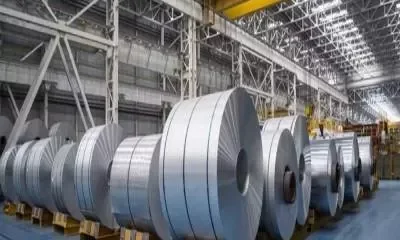

India Drives Global Steel Demand
-


Steelmakers Urge Government to Impose Temporary Tax to Curb Cheap Imports
Concrete
FORNNAX Appoints Dieter Jerschl as Sales Partner for Central Europe
Published
2 weeks agoon
February 5, 2026By
admin
FORNNAX TECHNOLOGY has appointed industry veteran Dieter Jerschl as its new sales partner in Germany to strengthen its presence across Central Europe. The partnership aims to accelerate the adoption of FORNNAX’s high-capacity, sustainable recycling solutions while building long-term regional capabilities.
FORNNAX TECHNOLOGY, one of the leading advanced recycling equipment manufacturers, has announced the appointment of a new sales partner in Germany as part of its strategic expansion into Central Europe. The company has entered into a collaborative agreement with Mr. Dieter Jerschl, a seasoned industry professional with over 20 years of experience in the shredding and recycling sector, to represent and promote FORNNAX’s solutions across key European markets.
Mr. Jerschl brings extensive expertise from his work with renowned companies such as BHS, Eldan, Vecoplan, and others. Over the course of his career, he has successfully led the deployment of both single machines and complete turnkey installations for a wide range of applications, including tyre recycling, cable recycling, municipal solid waste, e-waste, and industrial waste processing.
Speaking about the partnership, Mr. Jerschl said,
“I’ve known FORNNAX for over a decade and have followed their growth closely. What attracted me to this collaboration is their state-of-the-art & high-capacity technology, it is powerful, sustainable, and economically viable. There is great potential to introduce FORNNAX’s innovative systems to more markets across Europe, and I am excited to be part of that journey.”
The partnership will primarily focus on Central Europe, including Germany, Austria, and neighbouring countries, with the flexibility to extend the geographical scope based on project requirements and mutual agreement. The collaboration is structured to evolve over time, with performance-driven expansion and ongoing strategic discussions with FORNNAX’s management. The immediate priority is to build a strong project pipeline and enhance FORNNAX’s brand presence across the region.
FORNNAX’s portfolio of high-performance shredding and pre-processing solutions is well aligned with Europe’s growing demand for sustainable and efficient waste treatment technologies. By partnering with Mr. Jerschl—who brings deep market insight and established industry relationships—FORNNAX aims to accelerate adoption of its solutions and participate in upcoming recycling projects across the region.
As part of the partnership, Mr. Jerschl will also deliver value-added services, including equipment installation, maintenance, and spare parts support through a dedicated technical team. This local service capability is expected to ensure faster project execution, minimise downtime, and enhance overall customer experience.
Commenting on the long-term vision, Mr. Jerschl added,
“We are committed to increasing market awareness and establishing new reference projects across the region. My goal is not only to generate business but to lay the foundation for long-term growth. Ideally, we aim to establish a dedicated FORNNAX legal entity or operational site in Germany over the next five to ten years.”
For FORNNAX, this partnership aligns closely with its global strategy of expanding into key markets through strong regional representation. The company believes that local partnerships are critical for navigating complex market dynamics and delivering solutions tailored to region-specific waste management challenges.
“We see tremendous potential in the Central European market,” said Mr. Jignesh Kundaria, Director and CEO of FORNNAX.
“Partnering with someone as experienced and well-established as Mr. Jerschl gives us a strong foothold and allows us to better serve our customers. This marks a major milestone in our efforts to promote reliable, efficient and future-ready recycling solutions globally,” he added.
This collaboration further strengthens FORNNAX’s commitment to environmental stewardship, innovation, and sustainable waste management, supporting the transition toward a greener and more circular future.
Concrete
Budget 2026–27 infra thrust and CCUS outlay to lift cement sector outlook
Published
2 weeks agoon
February 2, 2026By
admin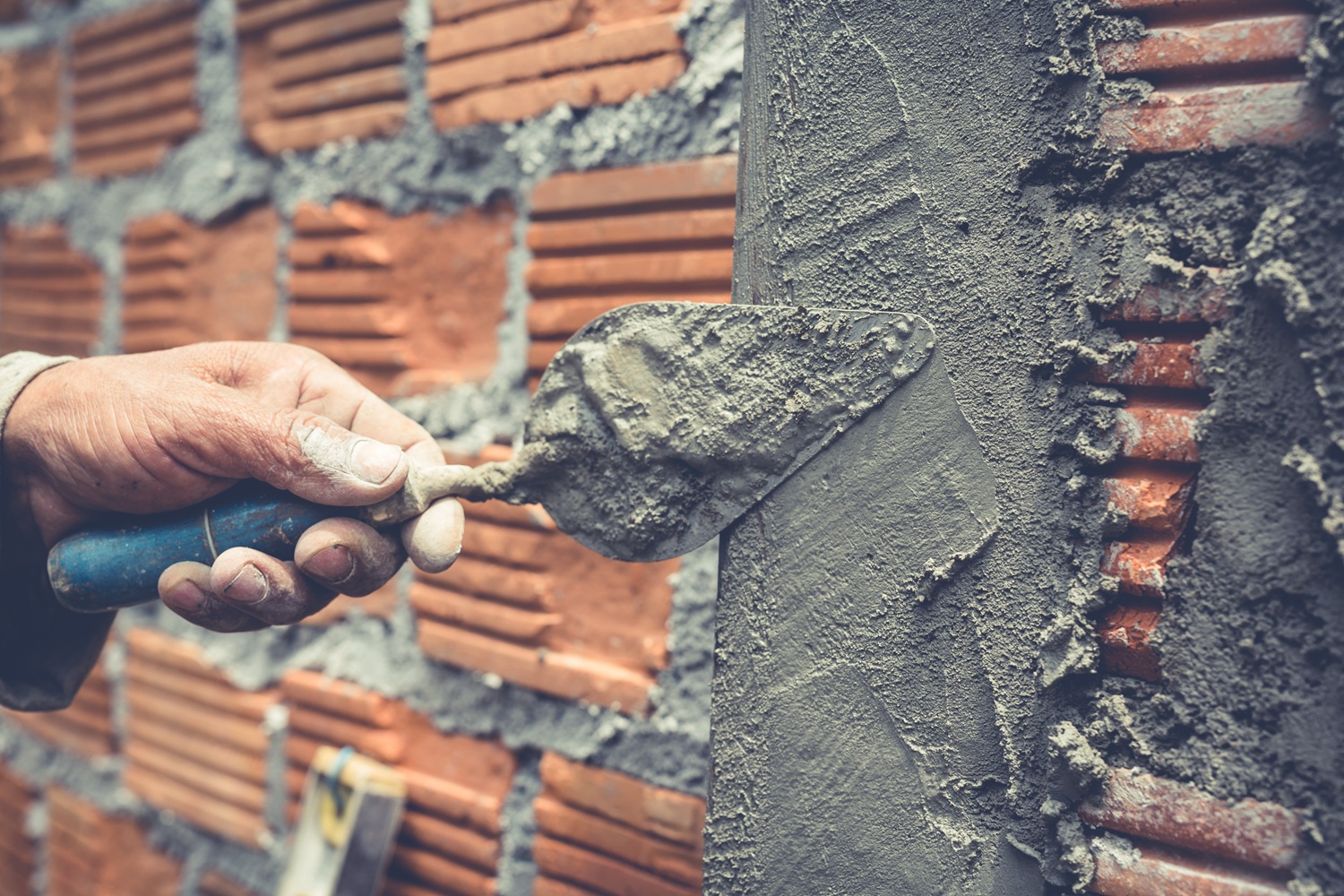
Higher capex, city-led growth and CCUS funding improve demand visibility and decarbonisation prospects for cement
Mumbai
Cement manufacturers have welcomed the Union Budget 2026–27’s strong infrastructure thrust, with public capital expenditure increased to Rs 12.2 trillion, saying it reinforces infrastructure as the central engine of economic growth and strengthens medium-term prospects for the cement sector. In a statement, the Cement Manufacturers’ Association (CMA) has welcomed the Union budget 2026-27 for reinforcing the ambitions for the nation’s growth balancing the aspirations of the people through inclusivity inspired by the vision of Narendra Modi, Prime Minister of India, for a Viksit Bharat by 2047 and Atmanirbharta.
The budget underscores India’s steady economic trajectory over the past 12 years, marked by fiscal discipline, sustained growth and moderate inflation, and offers strong demand visibility for infrastructure linked sectors such as cement.
The Budget’s strong infrastructure push, with public capital expenditure rising from Rs 11.2 trillion in fiscal year 2025–26 to Rs 12.2 trillion in fiscal year 2026–27, recognises infrastructure as the primary anchor for economic growth creating positive prospects for the Indian cement industry and improving long term visibility for the cement sector. The emphasis on Tier 2 and Tier 3 cities with populations above 5 lakh and the creation of City Economic Regions (CERs) with an allocation of Rs 50 billion per CER over five years, should accelerate construction activity across housing, transport and urban services, supporting broad based cement consumption.
Logistics and connectivity measures announced in the budget are particularly significant for the cement industry. The announcement of new dedicated freight corridors, the operationalisation of 20 additional National Waterways over the next five years, the launch of the Coastal Cargo Promotion Scheme to raise the modal share of waterways and coastal shipping from 6 per cent to 12 per cent by 2047, and the development of ship repair ecosystems should enhance multimodal freight efficiency, reduce logistics costs and improve the sector’s carbon footprint. The announcement of seven high speed rail corridors as growth corridors can be expected to further stimulate regional development and construction demand.
Commenting on the budget, Parth Jindal, President, Cement Manufacturers’ Association (CMA), said, “As India advances towards a Viksit Bharat, the three kartavya articulated in the Union Budget provide a clear context for the Nation’s growth and aspirations, combining economic momentum with capacity building and inclusive progress. The Cement Manufacturers’ Association (CMA) appreciates the Union Budget 2026-27 for the continued emphasis on manufacturing competitiveness, urban development and infrastructure modernisation, supported by over 350 reforms spanning GST simplification, labour codes, quality control rationalisation and coordinated deregulation with States. These reforms, alongside the Budget’s focus on Youth Power and domestic manufacturing capacity under Atmanirbharta, stand to strengthen the investment environment for capital intensive sectors such as Cement. The Union Budget 2026-27 reflects the Government’s focus on infrastructure led development emerging as a structural pillar of India’s growth strategy.”
He added, “The Rs 200 billion CCUS outlay for various sectors, including Cement, fundamentally alters the decarbonisation landscape for India’s emissions intensive industries. CCUS is a significant enabler for large scale decarbonisation of industries such as Cement and this intervention directly addresses the technology and cost requirements of the Cement sector in context. The Cement Industry, fully aligned with the Government of India’s Net Zero commitment by 2070, views this support as critical to enabling the adoption and scale up of CCUS technologies while continuing to meet the Country’s long term infrastructure needs.”
Dr Raghavpat Singhania, Vice President, CMA, said, “The government’s sustained infrastructure push supports employment, regional development and stronger local supply chains. Cement manufacturing clusters act as economic anchors across regions, generating livelihoods in construction, logistics and allied sectors. The budget’s focus on inclusive growth, execution and system level enablers creates a supportive environment for responsible and efficient expansion offering opportunities for economic growth and lending momentum to the cement sector. The increase in public capex to Rs 12.2 trillion, the focus on Tier 2 and Tier 3 cities, and the creation of City Economic Regions stand to strengthen the growth of the cement sector. We welcome the budget’s emphasis on tourism, cultural and social infrastructure, which should broaden construction activity across regions. Investments in tourism facilities, heritage and Buddhist circuits, regional connectivity in Purvodaya and North Eastern States, and the strengthening of emergency and trauma care infrastructure in district hospitals reinforce the cement sector’s role in enabling inclusive growth.”
CMA also noted the Government’s continued commitment to fiscal discipline, with the fiscal deficit estimated at 4.3 per cent of GDP in FY27, reinforcing macroeconomic stability and investor confidence.
Concrete
JK Cement Crosses 31 MTPA Capacity with Commissioning of Buxar Plant in Bihar
Published
3 weeks agoon
January 30, 2026By
admin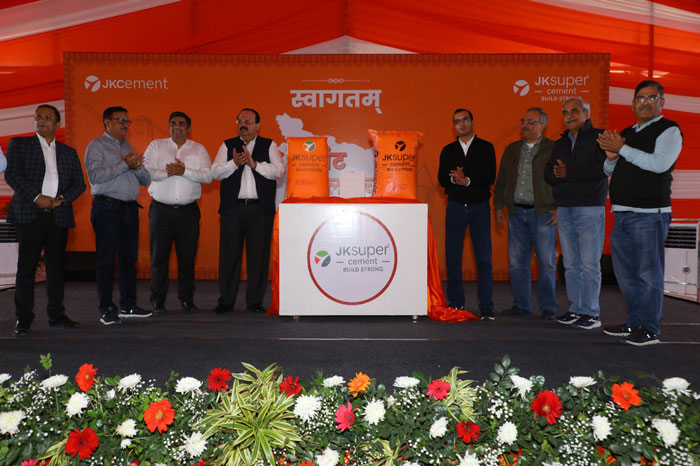
JK Cement has commissioned a 3 MTPA Grey Cement plant in Buxar, Bihar, taking its total capacity to 31.26 MTPA and placing it among India’s top five grey cement producers. The ₹500 crore investment strengthens the company’s national footprint while supporting Bihar’s infrastructure growth and local economic development.
JK Cement Ltd., one of India’s leading cement manufacturers, has announced the commissioning of its new state-of-the-art Grey Cement plant in Buxar, Bihar, marking a significant milestone in the company’s growth trajectory. With the commissioning of this facility, JK Cement’s total production capacity has increased to 31.26 million tonnes per annum (MTPA), enabling the company to cross the 30 MTPA threshold.
This expansion positions JK Cement among the top five Grey Cement manufacturers in India, strengthening its national footprint and reinforcing its long-term growth strategy.
Commenting on the strategic achievement, Dr Raghavpat Singhania, Managing Director, JK Cement, said, “Crossing 31 MTPA is a significant turning point in JK Cement’s expansion and demonstrates the scale, resilience, and aspirations of our company. In addition to making a significant contribution to Bihar’s development vision, the commissioning of our Buxar plant represents a strategic step towards expanding our national footprint. We are committed to developing top-notch manufacturing capabilities that boost India’s infrastructure development and generate long-term benefits for local communities.”
The Buxar plant has a capacity of 3 MTPA and is spread across 100 acres. Strategically located on the Patna–Buxar highway, the facility enables faster and more efficient distribution across Bihar and adjoining regions. While JK Cement entered the Bihar market last year through supplies from its Prayagraj plant, the Buxar facility will now allow the company to serve the state locally, with deliveries possible within 24 hours across Bihar.
Sharing his views on the expansion, Madhavkrishna Singhania, Joint Managing Director & CEO, JK Cement, said, “JK Cement is now among India’s top five producers of grey cement after the Buxar plant commissioning. Our capacity to serve Bihar locally, more effectively, and on a larger scale is strengthened by this facility. Although we had already entered the Bihar market last year using Prayagraj supplies, local manufacturing now enables us to be nearer to our clients and significantly raise service standards throughout the state. Buxar places us at the center of this chance to promote sustainable growth for both the company and the region in Bihar, a high-growth market with strong infrastructure momentum.”
The new facility represents a strategic step in supporting Bihar’s development vision by ensuring faster access to superior quality cement for infrastructure, housing, and commercial projects. JK Cement has invested approximately ₹500 crore in the project. Construction began in March 2025, and commercial production commenced on January 29, 2026.
In addition to strengthening JK Cement’s regional presence, the Buxar plant is expected to generate significant direct and indirect employment opportunities and attract ancillary industries, thereby contributing to the local economy and the broader industrial ecosystem.

FORNNAX Appoints Dieter Jerschl as Sales Partner for Central Europe

Budget 2026–27 infra thrust and CCUS outlay to lift cement sector outlook

Steel: Shielded or Strengthened?

JK Cement Commissions 3 MTPA Buxar Plant, Crosses 31 MTPA

JK Cement Crosses 31 MTPA Capacity with Commissioning of Buxar Plant in Bihar

FORNNAX Appoints Dieter Jerschl as Sales Partner for Central Europe

Budget 2026–27 infra thrust and CCUS outlay to lift cement sector outlook

Steel: Shielded or Strengthened?

JK Cement Commissions 3 MTPA Buxar Plant, Crosses 31 MTPA





